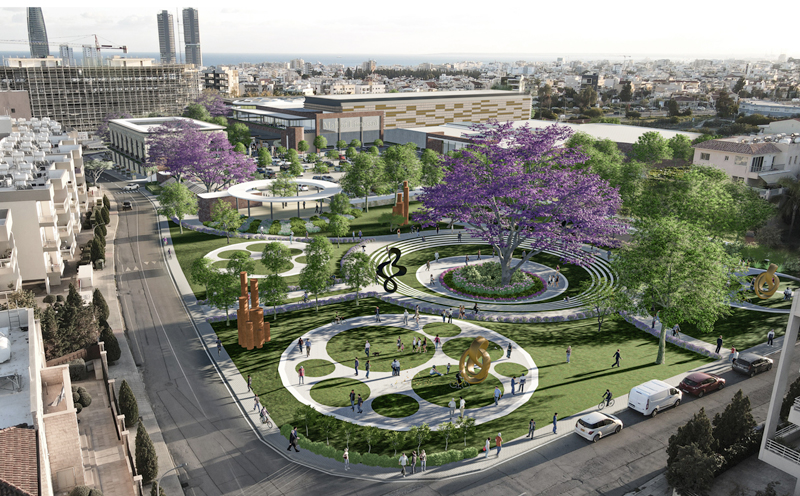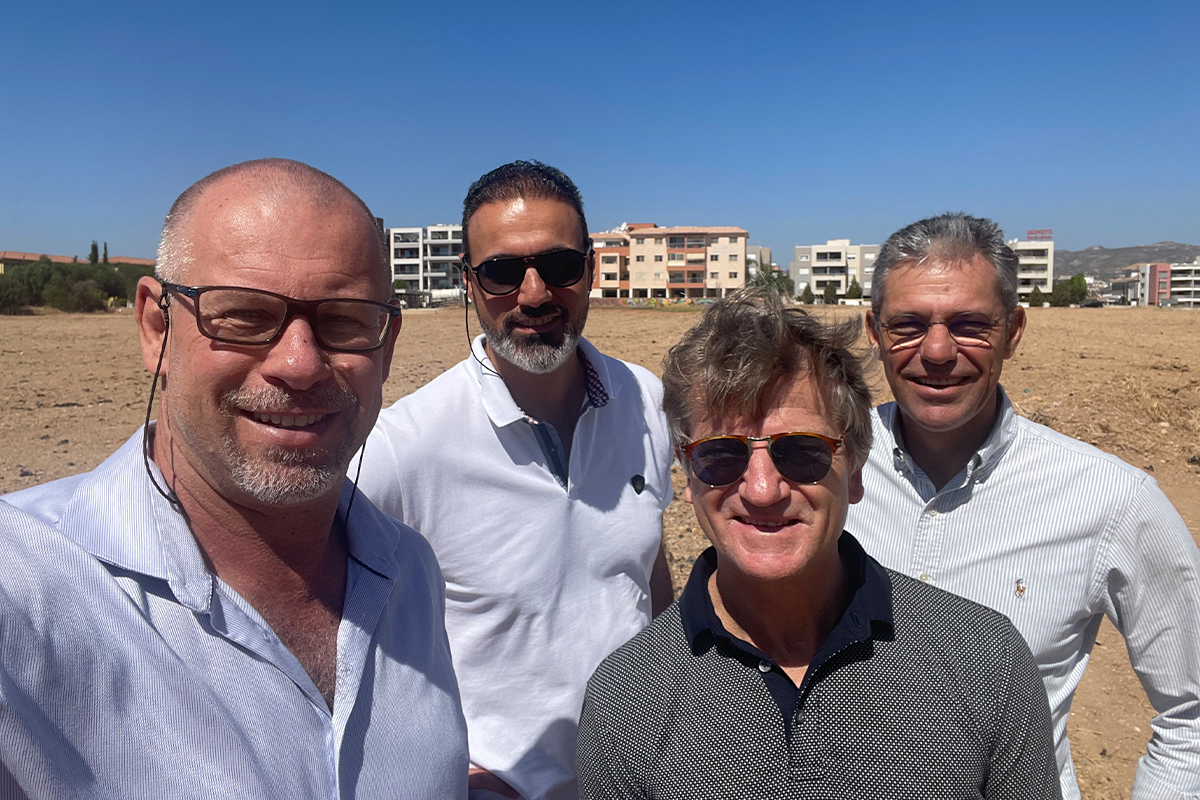Atterbury Europe is behind some of the most exciting property developments in Cyprus, Romania and Serbia, yet the role of a developer is not widely understood. Roux Gerber, head of developments for Atterbury Europe, lifts the veil on the profession.
In a chicken or egg equation, what comes first with a project – the developer or the construction company? Or is it the same thing?
It is not the same thing, so allow me to give a simplified summary of the complex role of a developer. While a developer in any industry plays a role in realising a project to fulfil a demand, when it comes to property development, the role has various facets. These include identifying a need in the market, securing the land needed to bring to life a solution to the need, followed by the development of a concept, as it is called, for the identified land and conducting viability studies. The developer then obtains market demand support on the concept, secures the required funding to make it happen, whether debt or equity.
The developer then engages professionals to design the concept to a stage where development rights can be applied for, and commissions the relevant studies required for the rights-approval process, while also securing development rights through extensive stipulated council processes.
In parallel, once the development rights have been secured, the developer will oversee the development of the concept into a detailed scheme, secure the funding to ensure the payment of all the contractors, identify and sign up the contractor and professional teams to execute the project, all the while complying with shareholders conditions.


Shareholders normally require a certain rental level to be reached before construction starts to ensure tenant risk is properly managed. Once the general contractor has been appointed and construction on the project commences, the developer manages the building process and any development risks until completion, while also overseeing the sales or rental revenue processes in accordance with the specific scheme and funding requirements. Once the asset is completed, the developer obtains the final occupation certificates from the local authorities, and, finally, hands over a final completed project over to a property management and asset management team to manage the day-to-day activities of the building.
So, the short answer is that the inception of a project starts with a developer, who identifies a need and who follows a lengthy process to fulfil this need.
The contractor, on the other hand, is a party in the execution process whose obligation is to build the scheme that was developed by the developer and his professional team to fulfil a need in the market


Can you be a developer without construction capabilities/experience?
Yes, that is totally possible. Many successful developers are in fact visionary individuals who come from a nontechnical background, but can spot a gap in a market and match this gap with a specific solution. Developers (as in companies) normally have internal development-management resources, but in some cases, these are also contracted in. In the case of Atterbury Europe, all developer and development-management skills and services are in-house.
So, within such development-management teams it becomes more relevant to have people with construction industry experience and capabilities – these skills enable the team to understand and coordinate technical design issues to achieve plans that are executable and align with operational requirements.

What are the particular skills or talents that a successful developer must have, and in the case of Atterbury Europe what attributes have enabled the company to be successful in foreign territories?
The most important attributes of a successful developer are, firstly, to be connected and aware of the market and industry conditions, by way of having a network of connections in the market and, secondly, to have a reputation of credibility within the industry. These attributes help in procuring valuable leads and opportunities. And then of course the developer’s success will depend on how this privileged information is transformed into a success story. To engineer, secure and match the various specific requirements for a successful project in the quickest possible time remains a key differentiating skill of a developer. In other words, “the art of bringing all the required components together”.
Atterbury Europe’s success stems from its roots as a company that highly values its relationships based on its slogan “It is a matter of association”. Being associated with the market-leading local partners or market-leading assets in the various countries of operation has proved to be a winning recipe for us. When you are surrounded and associated with like-minded partners and can bring value to the table based on years of experience, the rest become normal operating procedures. The value of having extensive experience in various countries and supported by sound development and operational systems cannot be understated.

What is the role of a development manager in this pipeline?
The best way to explain the role of a development manager is by the following analogy: the project is a gearbox, all the resources required to complete the project are the gears, and the development manager is the oil in the gearbox that makes it all run smoothly.
The development manager’s focus is therefore to orchestrate the process by bringing on the right professional resources for each specific aspect within the budgetary constraints; to provide design and project guidance based on experience, operational requirements, and deliverable expectations within the required quality norms, and to manage the overall process within the ambit of each professional’s obligation and deliverable. He also represents the developer with respect to the mandated obligations and must provide constant feedback to shareholders and beneficiaries on the project delivery status.
The role requires a broad insight into all elements involved in a project, from inception to hand-over, with the focus to coordinate the delivery of a quality project on time and within budget.
Where does a project manager fit in with respect to the development process ?
The roles of a development manager and that of a project manager are sometimes confused in the property industry.
A project manager, with respect to the gearbox analogy mentioned above, is one of the gears in the gearbox with a specific scope of deliverables as part of the professional team.
The role of a project manager is scope specific, technical in nature, systematic and normally associated with design coordination, construction management, time management, tenant installation coordination, and other specific ring-fenced operations or tasks.

What is typically one of the biggest challenges for a property developer?
It would be to match current real-time conditions/risks with the unforeseen future outcomes/risks, which are related to processes not under the developer’s control. The art of structuring deals in a way to minimise future unknown difficulties is a valuable weapon in Atterbury Europe’s arsenal and is always aligned with the associated risk involved. There is always risk in any development and to have clever ways to mitigate or minimise these without losing out on the deal seems to be a winning formula.
Let’s illustrate the role by way of an example: How did the above-mentioned abilities help to realise one of the Atterbury Europe projects – summarise what was executed from a developer point of view on one example of a recent or current project?
Based on Atterbury Europe’s operational presence in Cyprus, the need for a retail facility in the coastal city of Limassol was identified. This demand was tested through a tenant-demand survey and further supported by a retail-demand study. Through an extensive and complicated process, land was identified and secured with a mechanism to mitigate future risks relating to planning and access rights. The required studies in support of the concept were concluded and we are well advanced in the process to obtain the required development rights. The concept design, although at an early stage, is innovative and was well accepted in the market. The direct involvement of the Atterbury team, including top management, was instrumental from inception to arrive at this stage and we are actively coordinating and monitoring the process to the planned execution stage.

In front – ltr- Roux Gerber, then Gilbert Espitalier Noël (CEO of ENL), then far back, ltr- Polys Tsiartziazis (Dev Manager on-site in Cyprus) and Fred Tyack (MD of EnAtt). Gilbert and Fred are from Mauritius and we’re visiting the site as part of the parties investing in the prospective development.

